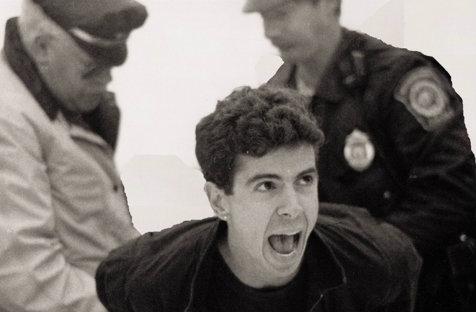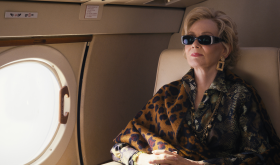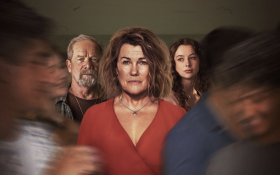In its title, How to Survive a Plague deliberately invokes horror films; in its content, the feature is purposefully terrifying. However, the source of its genuine dread and dismay is not a frightful genre or gruesome imagery, but injustice: the legal, medicinal and societal discrimination against AIDS suffers in the 1980s and early 1990s.
When HIV and AIDS emerged in the United States, panic struck. Alas, the concerns of politicians and the press were not directed towards the welfare of the unwell, nor were efforts to overcome the illness focused on fast-tracked treatments; instead, on television, in hospitals and in Congress, the conservative mainstream majority marginalised those affected. Sufferers were shunned by doctors and the public, and potentially beneficial pharmaceuticals were delayed by bureaucracy and manufacturers. In response, the AIDS Coalition to Unleash Power (ACT UP) was formed to advocate for the rights of the afflicted.
Comprised of archival news footage, personal home videos and interviews with former activists, David France’s rousing film documents ACT UP’s fight, fears, and fury. From its modest beginnings in March 1987 at the Lesbian and Gay Community Services Centre in New York City, the group vowed to bring the struggle for survival of people living with HIV/AIDS to the streets, coordinating demonstrations across the city, and soon, across the nation. Every anarchic action was calculated to promote the horrifying reality of a rapidly rising death toll due to medical inaction. Rage infused through their rhetoric, as ACT UP demanded attention in a sea of indifference.
In a stimulating and shocking snapshot, journalist and first-time filmmaker France crafts an essential chronicle of this dark chapter in American history. Many of the facts depicted have graced other documentaries, yet despite their familiarity the events shown feel fresh, thanks to the immediacy of the writer/director’s astutely compiled footage. Public protests are marked by a desperate determination to effect change, political discussions are as eloquent as they are impassioned, and family exchanges are the epitome of poignancy. In addition, How to Survive a Plague’s strong focus on the science of AIDS drugs and the fight to have them made more freely available provokes interest in its intensity.
Amidst the documentary’s excellent summary dwell a series of intimate stories about those involved. Peter Staley, a Wall Street trader turned ACT UP spokesperson, captivates in his commitment to the cause, while Bob Rafsky’s vocal resolve – catapulting AIDS issues into the spotlight during Bill Clinton’s election campaign – is as inspiring as his personal plight is tragic. The fragility and fortitude of those who lost sons, daughters, siblings and parents to the disease is palpable. How to Survive a Plague resonates with heartbreak, horror and humanity, its impact lingering long after viewing.
Rating: 4 ½ stars out of 5
How to Survive a Plague
Director: David France
USA, 2012, 120 min
Mardi Gras Film Festival
www.queerscreen.org.au
14 – 28 February
Actors:
Director:
Format:
Country:
Release:





